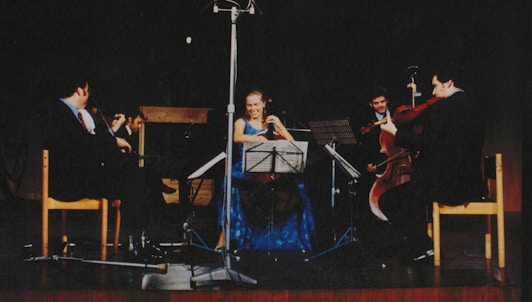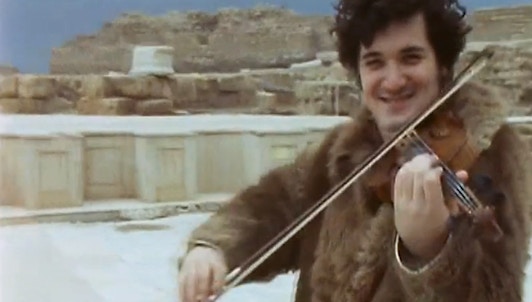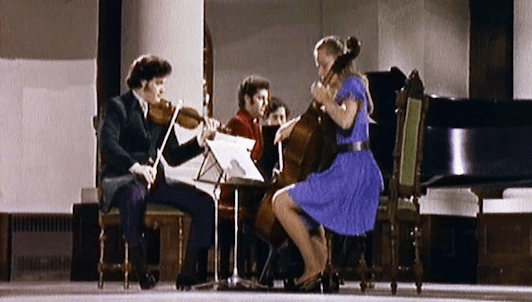The main character, a princess in her late 30s, realises she has to let go of her 17-year-old lover, Count Octavian, because he will soon find a younger playmate. Soprano Angela Denoke has been playing this part all through her career. "The interesting part about this role is that you look at it differently during different stages of your life, because your views on life change," she told euronews. "Now that I am older I reflect more on life and possibly also think about death, that life is finite. Earlier I looked at this from a distance, now I am closer to this issue. "Naturally, in the part, the woman's situation is clearly defined and she is stuck in it. Me, on the other hand, I have the freedom in my own life to change elements, although I didn't really want this right now. But I do believe that I grew with this part and this allows me to I dive much deeper into it," she said.
<^>If Angela Denoke is a veteran in the role, it was a first for world-renowned Indian conductor Zubin Mehta. "The first time with Rosenkavalier is not for me like I didn't know the opera at all and I open the score. I have been listening in some ways spiritually studying the RK since 1964 when I was in Vienna. The waltz is the language of Vienna and none of the other Strauss operas had any waltzes. Here he expresses himself, whether he is talking about a positive character on stage or a negative, they are all accompanied by the most charming waltzes," he says.
Mehta has had a long career, so is it not strange he comes to this work so late? "I had so many first times. First time in Vienna was a culture shock. First time I saw snow. I woke up one morning and everything was white. The biggest shock was hearing the Vienna Philharmonic in the Musikvereinshalle." Mehta has no problem relating to the 'Vienna sound'. In any case, music is an integral part of who he is. "I don't remember the first time I heard music, because it was in my home, my father played music before I woke up in the morning – music was my first language, without a doubt," he said.
But one great musical ambition remains: "I have dreams, I have dreams that in my country, in Kashmir, they will live in the future in complete harmony, they will find a solution finally that both sides will get together and say 'Look, let us just be friends and live together'. I would love to take an orchestra to Kashmir and have Hindus and Muslims listen to music. I would love it."


